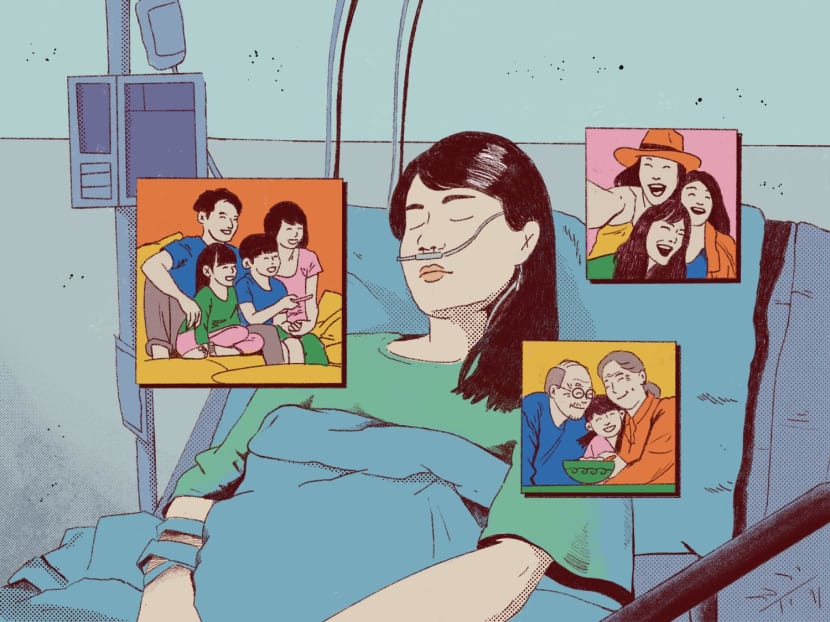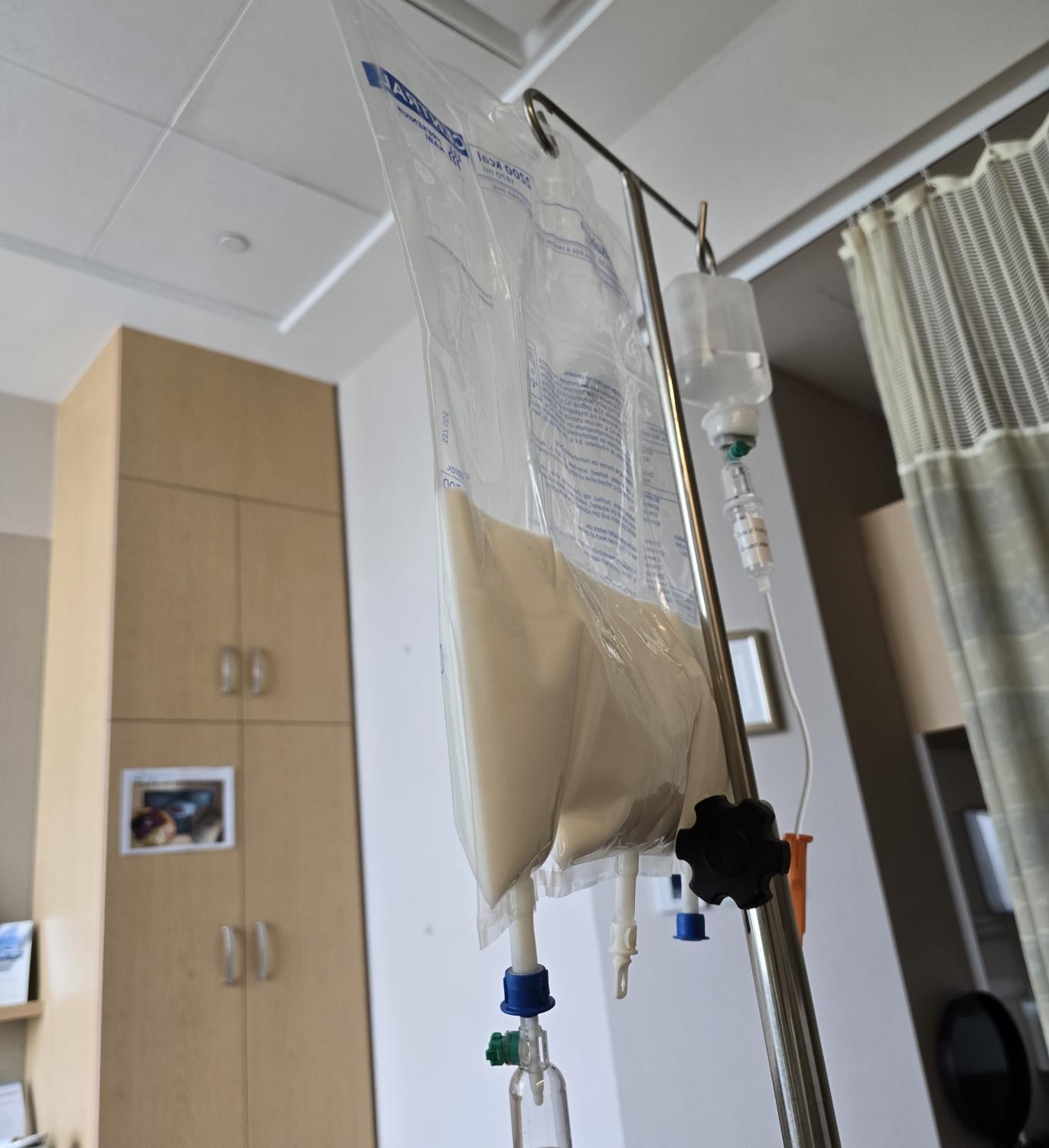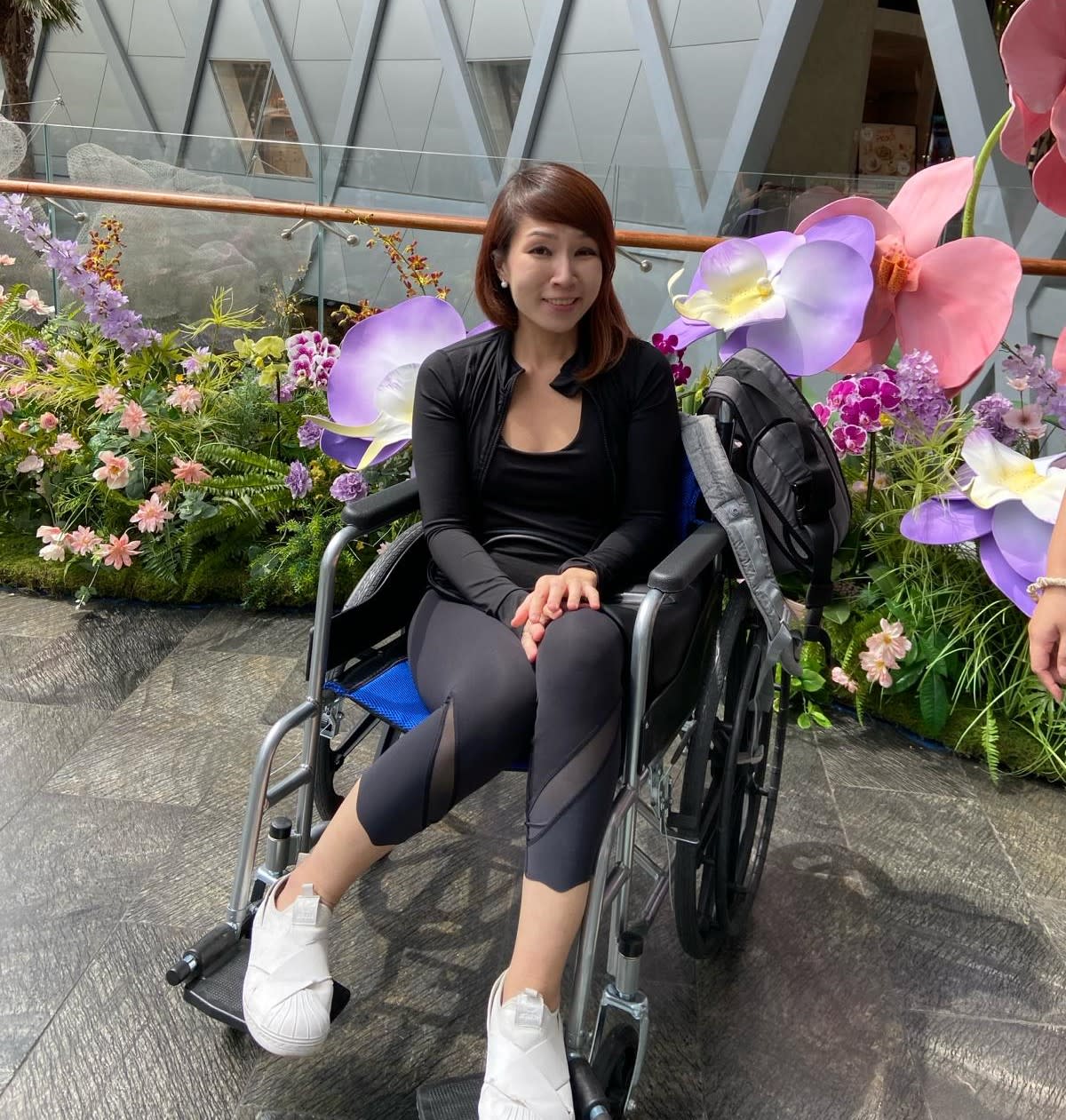Commentary: I was hospitalised for 24 days due to a medical emergency. It taught me that I can’t keep living life in the fast lane
I used to feel pretty invincible in the sense that I could conquer most physical challenges I set my mind to: 10 half-marathons in a year; long hikes along the Rail Corridor; Saturday runs along the beautiful Robertson Quay; HIIT workouts; near-daily weight routines at home.

Complications from a recent hysterectomy brought the author into an unexpected period of forced stillness, where she found herself re-evaluating what truly matters in life.

This audio is AI-generated.
"I was used to 'doing it all', until a recent emergency hysterectomy brought me into an extended period of forced stillness," says the author, a career development specialist. This is how a painful hospitalisation experience taught her to re-evaluate what truly matters in life: Health, relationships with loved ones, and living a life of gratitude and contentment.
I used to feel pretty invincible in the sense that I could conquer most physical challenges I set my mind to: 10 half-marathons in a year; long hikes along the Rail Corridor; Saturday runs along the beautiful Robertson Quay; HIIT workouts; near-daily weight routines at home.
Powered by coffee and supplements, I only slept four hours a night. I was “doing it all” — until a recent emergency hysterectomy brought me into an unexpected (and honestly unwanted) time of rest and recuperation.
But scar adhesions from the hysterectomy led to intestinal obstruction, a medical emergency for which surgery would be too risky.
And so, my brief respite was stretched out into an extended period of forced stillness, starting with an agonising 24-day stay in the hospital.
WRESTLING WITH PAIN
A nasogastric tube was inserted from my nose to my stomach via the oesophagus to suck out bile and relieve pressure from my increasingly distended stomach. Having this tube placed into me while awake was a traumatic experience, one I’m sure I’ll remember as long as I live.
For the first 17 days, I was allowed no food nor fluids. To allow complete bowel rest and avoid stressing my intestinal system, a catheter was inserted through a vein in my arm to provide my body with medication and liquid nutrition.
Pain was my constant companion. The severe abdominal spasms, bloating and distention, the hysterectomy wound — all of these were made worse by frequent bouts of retching and throwing up.
In the daytime, colouring and painting were my temporary respites, and I took comfort in having loved ones around.
But at night, whenever it was time for my mum and husband to go home, tears would roll down my cheeks the moment they closed the door behind them.
If sleep did come, it never lasted more than 20 minutes before I would be awakened again by the pain.

I don’t think I could have pulled through without the kind understanding and patience of my doctor, who even came in at 2am one night to check on me during a bad bout of vomiting. I was very grateful for his meticulous care.
But to be kept confined this way, to feel so physically debilitated when I was so used to such a bustling, active lifestyle was beyond terrible.
I wept at every nurse who came to check my vitals, begging to go home, to pull out my nasogastric tube. They pleaded with me not to — they didn't want me to go through the agony of reinserting it.
A LIFE OF EXTREMES
As I lay still in my hospital bed, thoughts and reflections flooded my mind. Vivid images of defining moments and seasons from my entire life played back in my head.
I realised that I have led an intense life of extremes. While these extremes have pushed and propelled me, such a lifestyle might not be sustainable in the long run.
I realised that in my pursuit of a healthy body, I was piling workout after workout on a very physically worn-out body. Cognitively, it seemed fitting to use fitness workouts to release stress and get the body in tip-top condition to push it further.
But it was such a vicious cycle: The more I worked out, the more my body needed rest. The more I couldn’t rest, the more I relied on caffeine and supplements.
In becoming addicted to the adrenaline and endorphins my workouts gave me, my “healthy” habits had become unhealthy.
CLARITY IN STILLNESS
I thought of people who had brought me such unadulterated joy, who warmed and delighted my heart.
I pictured hugging my husband and children, sitting with them on our sofa at home and laughing at silly TV shows.
I longed for my childhood favourite foods — chye poh (pickled radish) omelette, half a salted egg, and some salty condiments with a piping hot bowl of porridge — food I had enjoyed together with my late grandparents.
I recalled the feeling of the chubby fingers of my baby nephew and niece in my hands, and the sounds of their cooing.
I thought of dear friends, and ached to tell them how much they matter to me.
Why do we always keep the most precious sentiments for our nearest and dearest in our hearts, instead of voicing them aloud?
Why do we spend so much of ourselves on seeking to please or impress those who do not matter?
Why do we let ourselves get caught up in the hustle of everyday life, waiting until something as major as a serious health crisis to realise the importance of certain priorities and people?

MAKING OUR LIVES COUNT
Upon being discharged from the hospital, I resolved to do whatever I could to make my life count.
Firstly, I committed to restoring my health.
Now, I stick to a daily, light workout prescribed by my physiotherapist, followed by at least seven hours of sleep.
I chew my food well instead of gobbling meals down in front of a book or screen. I strive to finish up at least 1.5 litres of water each day, instead of just flitting from one cup of coffee to another.
I committed to putting my love for my family and loved ones into action.
I reach out to them more regularly, asking how they are and offering prayers and help if needed. Instead of just messaging dear friends, I call them more. It’s been so good, getting to hear their warm voices and share laughs together.
I organise gatherings instead of taking for granted that we can always meet eventually in the near future.
I committed to living a life of gratitude and contentment despite challenges and obstacles, and to having the courage to pursue my dreams and bring them to fruition.
I journal daily and meditate often upon the motivations behind my thoughts and actions. I am mindful of how I spend every hour and every day, for each one truly comes as a gift.
HEALING FROM WOUNDS
Despite the many wounds I have sustained — both over the last few weeks as well as long before that — my forced stay in the hospital has brought much-needed restoration and healing for more than just my body.
I take reference from one of my favourite authors, Henri Nouwen:
"Nobody escapes being wounded. We are all wounded people, whether physically, emotionally, mentally, or spiritually. The main question is not 'How can we hide our wounds?' so we don't have to be embarrassed but 'How can we put our woundedness in the service of others?'"
What truly matters?
My answers may differ from yours, for we are all on different journeys.
Nevertheless, perhaps my reckoning with my wounds can bring forth some form of healing for you too.
ABOUT THE AUTHOR:
Yvonne Kong-Ho works in a university, specialising in workforce development.








